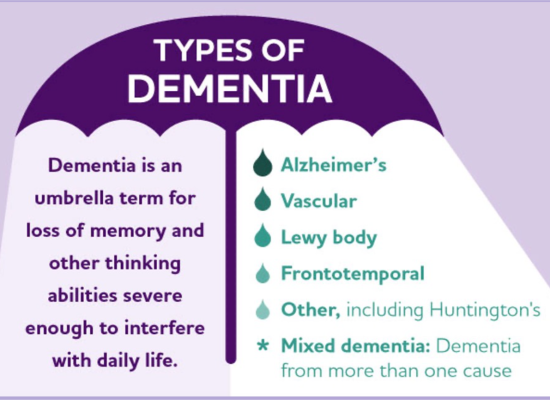What we Treat
Dementia
Dementia is not a specific disease but rather a general umbrella term for the impaired ability to remember, think, or make decisions that interfere with doing everyday activities. Alzheimer’s disease is the most common type of dementia.
According to Alzheimer’s Disease International, every three seconds, somebody in the world develops dementia. To help slow the progression of this debilitating disease, our providers and the team at Ohio Psychiatric Services offer guidance to safe and effective dementia management and care at their offices in Lancaster and Hilliard Ohio.
WHAT IS DEMENTIA?
Dementia refers to a variety of diseases and conditions characterized by memory loss, a reduction in problem-solving and language abilities, and other thinking skills that affect your ability to complete daily tasks. Caused by abnormal brain changes, dementia triggers a decline in your thinking skills, or cognitive abilities, making it difficult to function independently.
While dementia does not have a cure, early diagnosis and interventional therapies can help slow the progression of the disease, and manage the coexisting behavioral symptoms effectively so you can live independently for as long as possible.
WHAT ARE THE SYMPTOMS OF DEMENTIA?
The symptoms of dementia can vary depending on the type and progression of the disease. Some of the most common dementia symptoms to watch for in your loved ones include:
-
Recent memory loss:
One sign of recent memory loss is if a person repeatedly asks the same question. -
Difficulty completing familiar tasks:
Familiar tasks, such as making a drink or cooking a meal, can be difficult for people with dementia to complete. -
Problems communicating:
Those with dementia often struggle with language — forgetting simple words or using the wrong ones. -
Disorientation:
Many people with dementia suffer problems with disorientation, such as getting lost on a previously familiar street.

-
Problems communicating:
Those with dementia often struggle with language — forgetting simple words or using the wrong ones. -
Disorientation:
Many people with dementia suffer problems with disorientation, such as getting lost on a previously familiar street. -
Problems with abstract thinking:
Abstract thinking instances, such as dealing with money, can pose a challenge for a person with dementia. -
Misplacing things:
For example, people with dementia often forget the location of everyday items, such as keys or wallets. -
Mood changes:
Sudden and unexplained changes in outlook or disposition can be a telltale sign of dementia. -
Personality changes:
Many people with dementia become irritable, suspicious, or fearful as the disease progresses. -
Loss of initiative:
Dementia can lower your interest in activities and places you once loved.
WHAT ARE DIFFERENT TYPES OF DEMENTIA?
There are many diseases and medical conditions that can lead to various types of dementia, including:
-
Alzheimer’s disease:
Alzheimer’s disease is the most common form of dementia, characterized by “plaques” between the dying cells in the brain and “tangles” within the cells. The brain tissue in those with Alzheimer’s disease has fewer nerve cells and connections. The brain size itself also shrinks. -
Vascular dementia:
Vascular dementia is caused by damage to the blood vessels in the brain, which can be the result of stroke or other conditions that affect blood flow to the brain.

-
Mixed dementia:
Mixed dementia occurs when you have two or three different types of dementia. For instance, a person may show both Alzheimer’s disease and vascular dementia at the same time. -
Parkinson’s disease:
Parkinson’s disease is a central nervous system disorder that can lead to dementia symptoms marked by the presence of Lewy bodies. -
Huntington’s disease:
Huntington’s disease, which occurs when nerve cells in the brain break down, can cause dementia symptoms in many patients.
While dementia has no cure, providers at Ohio Psychiatric Services can provide an array of treatment options to slow down the progression of the disease and to manage the behavioral symptoms associated with different types of dementia.
To schedule an appointment with one of the expert providers on our team, call Ohio Psychiatric Services at the Lancaster or Hilliard office at 740 201 6021, or book a visit online today.

